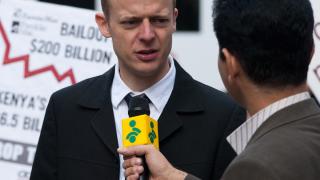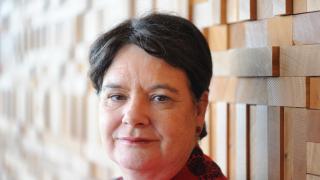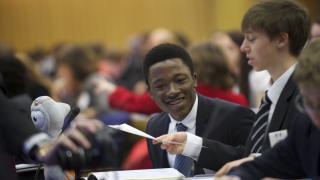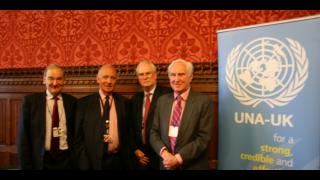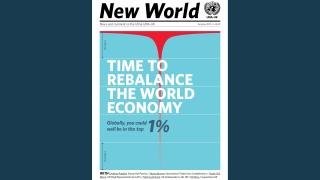
According to the International Labour Organisation’s (ILO) 2012 Global Employment Trends report, the world needs 600m new jobs over the next decade to reduce global unemployment to the level it was at before the 2008 financial crisis.
Merely recovering from the worldwide recession might seem a limited objective, but think about it – 600m jobs. Barack Obama has been lauded for presiding over the creation of some half a million new jobs in the US over the past months, but at this pace, even the world’s biggest economy would take 300 years to create all the jobs that the world needs over the next 10.
Of course, we must not only look to the US, or even developed countries as a whole, to create all these jobs. Countries like Brazil, India, China and the Philippines will also need to play a major role. But those countries too face challenges when it comes to job creation. This is because the world does not need jobs – let alone growth – at any price.
What the world needs is decent work and sustainable growth. Two UN conferences taking place this summer will be crucial to this effort. The first is that of the ILO, from 30 May to 15 June.
Predating the UN, the ILO is the only inclusive global institution with a remit to address unemployment and conditions at work. Its tripartite structure enables unions, employers and governments to come together to promote the decent work agenda, including more and better jobs, rights at work, social dialogue and social protection like pensions and family credits (of which Brazil’s Bolsa Familia, a welfare programme that provides short- and longterm aid to families, is a good example).
Then, in late June, the UN will convene a major international conference in Brazil on sustainable development.
‘Rio+20’ will focus on green jobs as one of its two main themes. This approach is vital. If we are going to create more and better jobs, we cannot ignore the impact that they will have on the planet – nor indeed the impact of existing jobs. Unions support the green jobs agenda – we recently published a report showing how it could create 48m jobs in just 12 countries – but we will only be able to make the transition to a low- or no-carbon economy if we ensure that the workers who will be affected – and their rights – are at the core of our efforts.
However, the meeting taking place this summer that could play the greatest role in tackling global unemployment will be held under the auspices of the G20. Employment ministers from the world’s largest economies met in May in Guadalajara, Mexico (which currently holds the chair of the G20).
Unions welcomed ministers’ commitments to create green jobs and tackle youth unemployment – 20–50% of young people in G20 countries are out of work – but warned that leaders must take action at the June G20 summit in Los Cabos, Mexico, to realise these commitments. Trade unionists and employers will be there too, as the L20 (labour) and B20 (business) groups, to pursue what is often a common agenda for youth guarantees, apprenticeships and infrastructure investment.
The current global unemployment rate – some 200m – and the extra jobs we need to provide for growing populations and increased urbanisation, will pose a huge challenge to the world economy. We will not get where we need to be without a renewed emphasis on equality.
Women, in particular, need equal pay and child and elder care, as well as an end to violence and harassment, to allow them to access the workplace. But we also need better pay across the board, and to take steps that constrain the widening gap between pay at the top and in the middle. Addressing both these aspects of equality (and there are many more) will require a return to the collective bargaining between unions and management that was a feature of the rise of the middle class in the US and the creation of the European social model after the Second World War, as well as more recent moves towards conquering inequality in Latin America.
This is the trade union agenda for how to tackle poverty and climate change and build a new, better, world economy based on justice, fairness and rights for all.
Sharan Burrow is General Secretary of the Brussels-based International Trade Union Confederation (ITUC), which has 175 million members in 150 countries. A former teacher in New South Wales, Australia, Ms Burrow was elected to lead the ITUC in 2010 after standing down as President of the Australian Council of Trade Unions.



